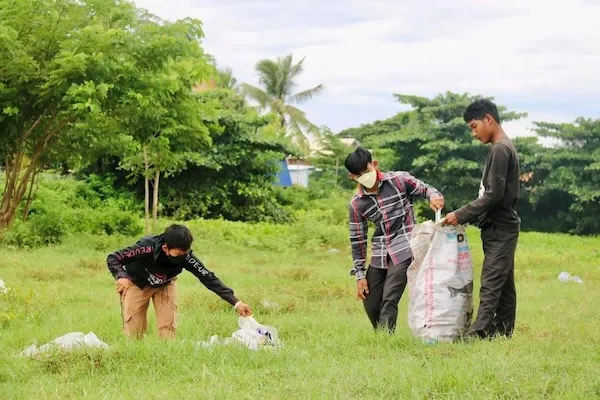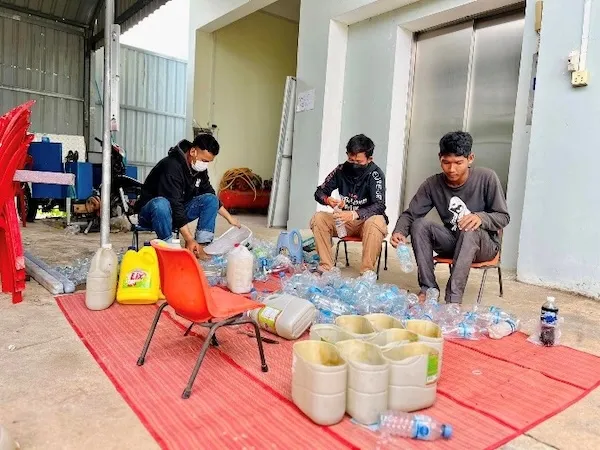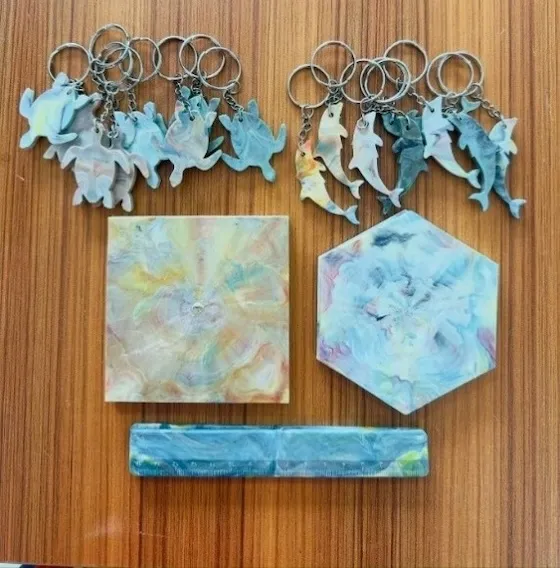Background
Plastic waste is a global concern causing devastating effects to the environment. It is a problem that won’t just go away on its own. It needs a new analysis, innovative ideas, collaborative action and joined up thinking to prevent its negative impact and to stop the planet from suffocating in plastic waste. Despite producing more than 430 million tons of plastic per year (United Nations Foundation 2023), we re-use only around 10%. This results in 90% waste, which is alarming.



What we did
In Cambodia, in collaboration with our partner organization, the Disability Development Service Program (DDSP) in Pursat Province, we have launched a plastic recycling project aimed at addressing a major environmental threat—plastic waste—while promoting full inclusion in rural livelihoods, with a particular focus on gender and disability. The project provides young individuals, especially youth with disabilities, with essential skills and employment opportunities.
Between July and December 2024, the project made significant progress. A total of 145 children, including 76 girls, enrolled in English and computer courses, while several youths received vocational training in sewing and plastic recycling. The recycling initiative not only contributed to environmental sustainability but also empowered participants by turning plastic waste into valuable products such as key rings, drink mats, rulers, and plastic poles for agricultural use.
Plastic waste is collected, sorted, cleaned, shredded, and molded into useful items, generating income for those involved and demonstrating the potential to scale up significantly. Over seven months, the project collected approximately 1,320 kg of waste and produced 7,284 recycled items. Additionally, 1,068 people participated in awareness sessions on plastic recycling.
Complementing these efforts, the sensory garden initiative also expanded during this period. With new vegetable and flower plantings, it offered children with disabilities rich sensory experiences while reinforcing sustainability values. Volunteers were trained in gardening, and the harvested vegetables were used to prepare meals.
Looking ahead, the center aims to strengthen partnerships, increase plastic collection, and enhance training programs to equip more youth with disabilities with valuable skills, ultimately improving their chances of long-term employment.